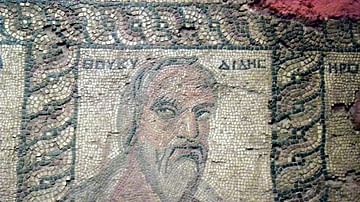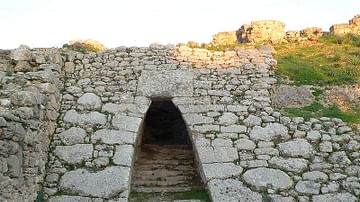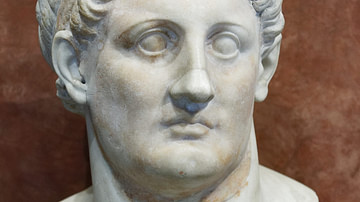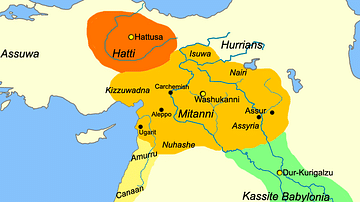Search Definitions
Browse Content (p. 269)

Definition
Ogham
One of the stranger ancient scripts one might come across, Ogham is also known as the 'Celtic Tree Alphabet'. Estimated to have been used from the fourth to the tenth century CE, it is believed to have been possibly named after the Irish...

Definition
Torah
The Torah, also known as the Pentateuch (from the Greek for “five books”), is the first collection of texts in the Hebrew Bible. It deals with the origins of not only the Israelites but also the entire world. Though traditionally the Hebrew...

Definition
Thucydides
Thucydides (c. 460/455 - 399/398 BCE) was an Athenian general who wrote the contemporary History of the Peloponnesian War between Athens and Sparta, which lasted from 431 BCE to 404 BCE. However, Thucydides' History was never finished, and...

Definition
Ancient Cyprus
Cyprus is a large island located in the eastern Mediterranean Sea, east of Greece, south of Asia Minor, west of the Levant, and north of Egypt. The naming of the island is a matter of dispute amongst historians. One theory suggests that...

Definition
Ugarit
Ugarit was an important sea port city in the Northern Levant. Though never a world power, Ugarit was a key economic center in the Ancient Near East, serving as a major trade center between Egypt and the major powers of Bronze Age Asia Minor...

Definition
Roxanne
After Alexander the Great's victory over King Darius III at the Battle of Gaugamela in 331 BCE, he had to contend with small rebellions that broke out across his empire. In the summer of 328 BCE, one such rebellion occurred in the eastern...

Definition
Eucratidia
Eucratidia was a Greek town in Bactria, one of the easternmost area ever controlled by the Greeks, located at the modern site of Aï Khanum in North-Eastern Afghanistan. The history of this city is still rather unknown, but it seems that...

Definition
Battle of Gaugamela
The Battle of Gaugamela (1st October 331 BCE, also known as the Battle of Arbela) was the final meeting between Alexander the Great of Macedon and King Darius III of Persia. After this victory, Alexander was, without question, the King of...

Definition
Ptolemy I
Ptolemy I Soter (366-282 BCE) was one of the successor kings to the empire of Alexander the Great. He served not only as king of Egypt but also the founder of the Ptolemaic Dynasty, a dynasty which included the infamous Cleopatra VII. Early...

Definition
Hatti
The Hatti were an aboriginal people in central Anatolia (present-day Turkey) who first appeared in the area around the River Kizil Irmak. The prevailing understanding is that they were native to the land although it has been suggested they...